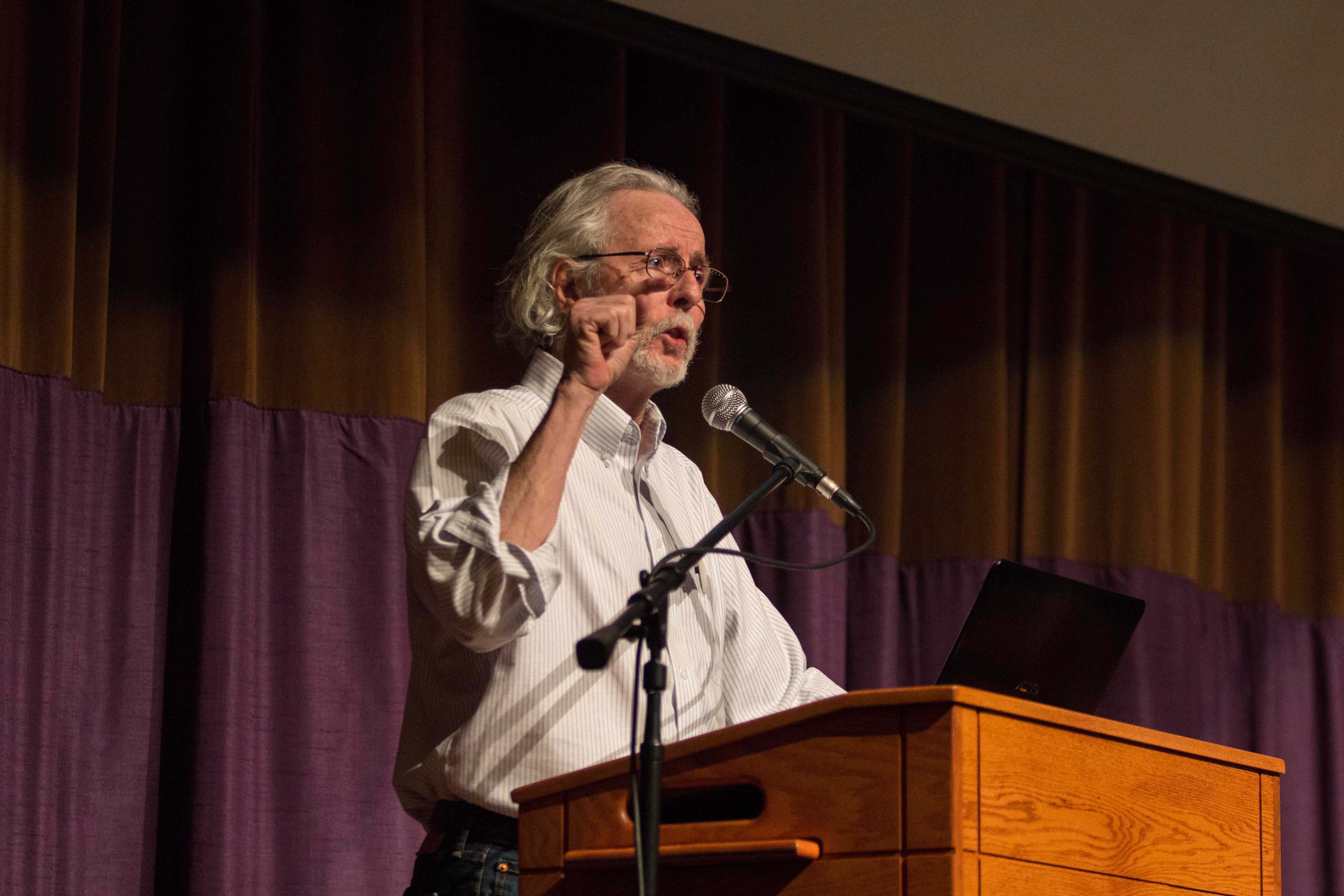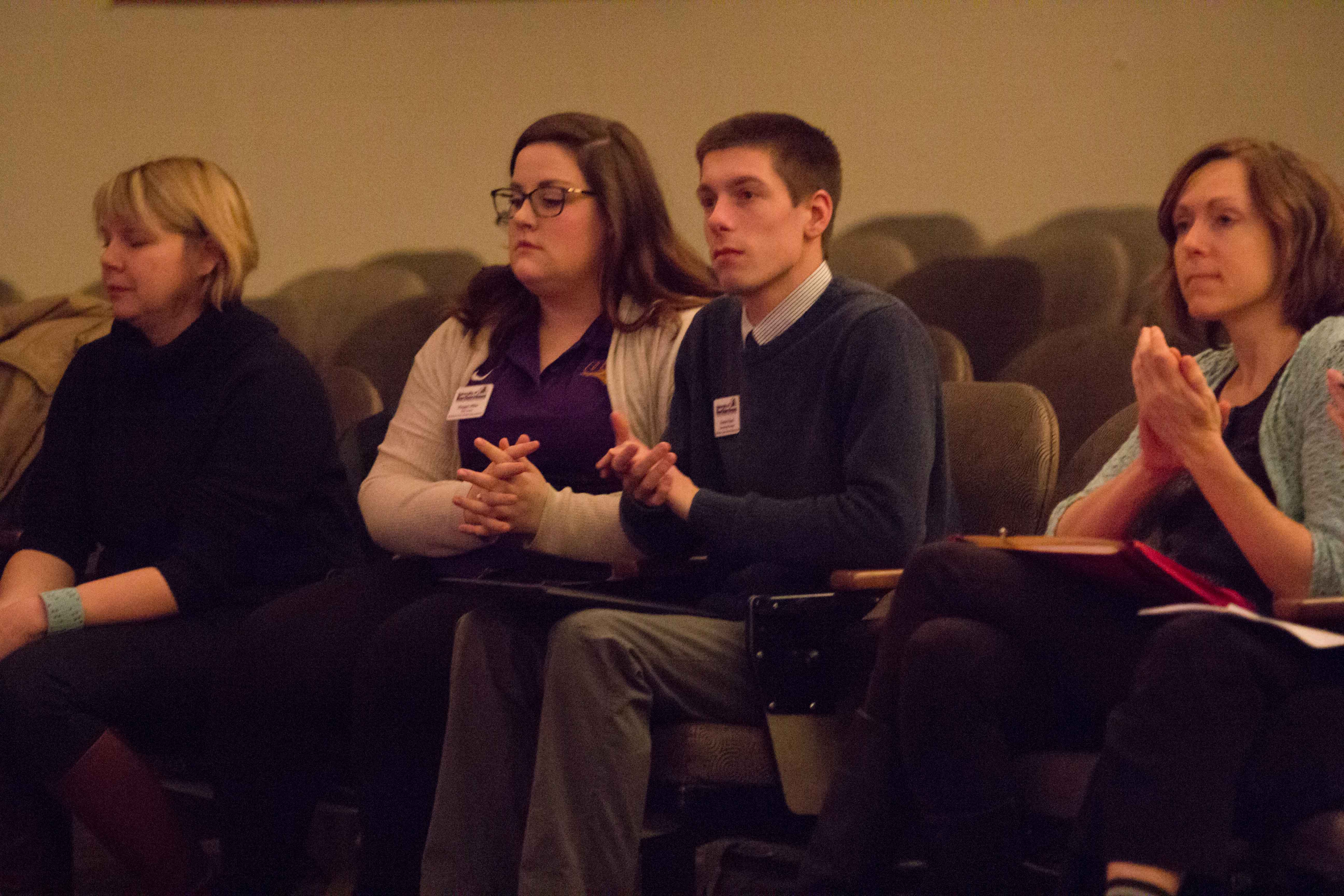UPDATE: UNI United Faculty opposes labor bill
Feb 16, 2017
UNI faculty and other campus groups are moving to oppose an Iowa bill that would strip rights away from public-sector union workers, including members of United Faculty, UNI’s faculty union.
The bill, introduced just a week ago, would limit negotiations between union reps and employers to base wages only. In the past, unions could negotiate health insurance, working conditions, seniority perks and other benefits per what is commonly referred to as Chapter 20 of the Iowa Code.
Stances on restricting collective bargaining rights have been divided between parties; republicans favor it and democrats are opposed.
According to a United Faculty press release sent to the Northern Iowan (NI), nearly 82 percent of the UNI faculty who responded to a survey say they would consider leaving UNI, either by seeking employment elsewhere or retiring early, if UNI’s faculty lose the right to bargain collectively with the Board of Regents (BOR).
“We’ve gone through the shuttering of Price Lab, large cuts in academic programs, continued budget cuts, the loss of President Ruud and now this,” said Joe Gorton, United Faculty president and associate professor of Sociology, Anthropology and Criminology, in a press release.
“There is only so much that faculty and students can take before they lose confidence in UNI and the Board of Regents,” Gorton said. He is referring to the closing of the Malcolm Price Lab and the cutting of nearly 60 academic programs at UNI in 2012.
The United Faculty press release shared anonymous comments from professors who took part in the survey.
“The loss of our right to have full and fair collective bargaining will ruin UNI,” read one comment.
“I will start looking for a new position the moment this becomes law,” said another survey respondent.
Hundreds have been rallying at the Des Moines State Capitol throughout the week in opposition to the bill, which would impact Iowa’s 184,000 public-sector employees.
Public safety workers — such as police and firefighters — are exempted from the bill.
Gorton and the faculty union have called upon President Mark Nook, Provost Jim Wohlpart and the BOR to oppose the bill.
Nook issued an email statement to the NI regarding the bill.
“Regardless of the outcome of the proposed changes to collective bargaining legislation, we are committed to working with all employee groups to create a safe and respectful workplace and to provide competitive compensation and benefits within our available resources so that we can continue to provide our students with the high quality of education they deserve,” read Nook’s statement. Nook was traveling on business and wasn’t available for further comment.
Gorton said United Faculty met with Nook on Monday and said the sentiment from Nook is that he is restrained from commenting on the bill because the BOR haven’t officially commented.
“To be perfectly honest, I’m not impressed by that explanation,” Gorton said. “Admittedly, what we would have hoped President Nook would have done was to tell elected leaders, including the governor, that collective bargaining has worked really well at UNI for 42 years.”
Gorton said there is potential for the union and the administration to reach an agreement similar to the current form regardless of it being stipulated in Iowa law. He said there have been “very, very preliminary communications about that.”
“So yes, there’s a lot of potential, but […] sometimes things happen that are out of your control,” Gorton said. “And we hope that doesn’t happen here.”
State Representative Bob Kressig, D-Cedar Falls, introduced an amendment on Wednesday to the bill that would add employees of Regent institutions to the definition of public safety workers, thus making them exempt.
Kressig said “destroying” Chapter 20 would impact UNI beyond current public employees. He says the many future educators at UNI, who are now current students, will be impacted by the legislation.
“I’ve talked with some [people] in emails who are reconsidering their choices; they may not be a teacher, now, in Iowa. They may look elsewhere,” Kressig said.
The Northern Iowa Student Government (NISG) has issued a unanimous resolution in support of United Faculty.
“Students rely heavily on the knowledge and expertise of faculty at the University of Northern Iowa,” read the NISG resolution.
With NISG elections less than a week away, both tickets — Maggie Miller and Danielle Massey and Jamal White and Tristan Bernhard — have expressed opposition to the bargaining bill.
“If you take away collective bargaining rights from faculty, I think you create a system in which there’s a unilateral relationship between administration and faculty where faculty doesn’t have the same seat at the table that they had before” said Bernhard, who’s running for vice president. “That’s important for education […] it’s definitely a barrier for educators if they can’t get the same resources here as they can across the country.”
White, who’s running for student body president, discussed the positive relationships he’s had with professors during his time at UNI, and expressed concern that the bill could lead to 82 percent of faculty looking elsewhere.
“That’s a huge drop,” White said through a shocked laugh. “I think the bill takes away the empowerment of our faculty and it really takes away from the protections of our programs. Obviously, 82 percent of faculty [leaving] would be detrimental to our programs and our UNI pride.”
Maggie Miller, who’s running for student body president, was also troubled by the 82 percent number.
“I think it would be a devastating loss to UNI,” Miller said. “A big part of why UNI’s so special is because of the faculty. And if I thought about 82 percent of my department leaving, I would be heartbroken. I wouldn’t have stayed at UNI my freshman year if it hadn’t been for the support of my department.”
Oliverio Covarrubias, an NISG senator, called the bargaining bill “foolish.”
“A big concern is that doing away with collective bargaining is that it’ll also lead to some of the problems they want to avoid — strikes and lawsuits,” Covarrubias said.
Iowa Governor Terry Branstad signed the bill into law Friday.













